#jean-baptiste marion
Explore tagged Tumblr posts
Text
Willem and Jude in JB's point of view:

Who's the frog? Who's the toad? It's still a debate.
#a little life#hanya yanagihara#jude st francis#willem ragnarsson#Jean-Baptiste marion#jb marion#malcolm irvine
97 notes
·
View notes
Text
A Little Life - Harold Pinter Theatre
For anyone who does wish to attend this production, please don’t take the content warnings lightly - the self-harm is graphic and two characters have full-frontal nudity.
I (Freddie) attended the matinee production at the Harold Pinter Theatre in London on Sunday 7th May
THIS REVIEW/ANALYSIS DOES CONTAIN SPOILERS FOR BOTH THE NOVEL AND STAGE PRODUCTION, SO PLEASE BE AWARE!
Trigger Warnings: talks of self harm, child abuse, sexual assault, domestic abuse and more
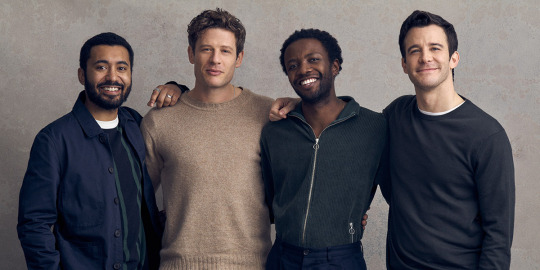
There’s no discernible reaction from the audience when Luke Thompson as Willem makes his entrance onto the stage. He’s wearing a dark blue hoodie, the hood pulled up over his hair - perfectly innocuous, nothing spectacular or grand as he walks about the stage. The lights are still bright, the audience is still chatting, laughter is filling the room. And Luke Thompson as Willem is onstage frying himself some bacon and eggs.
What has struck me again and again whenever I reread A Little Life - because, yes, I get a masochistic kind of joy from putting myself through that pain repeatedly - is the intimacy of it. Naturally with any book, the reader is granted the chance to feel close to the characters, to garner a look at their lives behind the veil. But if you were to ask me, I would say that there are very few - if any - novels that create this illusion as Hanya Yanagihara’s does. For 813 pages you are allowed to experience this life as they are, to experience snapshots of their lives - the good, the bad and the unimaginably horrifying - even as the rest of New York, the rest of the world, goes on as normal, with no thought spared to what is occurring within the walls of Lispenard Street and their subsequent homes.
The awareness that despite what Jude is revealing to the readers about his past, the beyond nightmarish history he has, the world is continuing to go on as normal was perhaps the aspect of the novel I adore so much that I was most scared about losing in adapting it for other mediums.
But from the moment Luke Thompson stepped onto stage, transformed into Willem and beginning to go about his daily life, with the moving images of New York streets surrounding him in his apartment, I knew that my worries had been unfounded. Ivo Van Hove with his unbelievable direction paired with Jan Versweyveld’s set design had found a way to maintain that understanding.
Throughout almost all of the performance, there is no moment of stasis. Be it JB and Malcom painting and working at desks on the right side of the stage, or Andy reading his book in his clinic, or the ever-present Willem and Harold.
The former is always in the same spot on a sofa at the back of the stage, flipping through scripts, determined to make it big as an actor, pouring all of his attention and focus onto learning the lines, dedicated to making his dream a reality, and yet always there ready to support Jude. In the second act, Luke Thompson takes the exact same pose when listening to Jude revealing the details of his childhood, desperate to understand his best friend, and at this stage his lover, in the same way he had been desperate to make it as an actor.
Harold, however, spends much of his time on stage left, stationed at the kitchen set up. Constantly in movement, cooking several dishes throughout the course of the play. A reference, perhaps, to the number of Thanksgivings Jude is reported to have spent with him and his wife, Julia (absent from this adaptation).
Despite the eternal loneliness that James Norton as Jude exudes with just his presence, he is only truly alone for a few moments - the harrowing whisper of “x equals x” that he gasps out after Elliot Cowan as Caleb leaves him naked in the street. It is then that he is alone onstage, laying in his blood, until he is retrieved by his loved ones and taken to rest on Andy’s hospital bed.
It is this detail of James Norton’s performance as Jude that I found the most powerful - which is saying something, considering that I am considering suing him for emotional damages, hasn’t anyone ever told him to think about using his acting powers for good, rather than evil? He captures a side of Jude that I had not previously considered - Jude views himself as a side character in his own life. He doesn’t feel worthy of attention, of his friendships, he is lonely in spite of being surrounded by those he loves the most and as a result feels unable to call out and ask for the help he desperately craves but does not believe that he deserves.
The contrast between this and the fact that Jude is always centre stage is immense and almost disconcerting to watch and caused me to spend the entire performance practically begging him in my head to just turn around, they’re right there!
But this desire to be helped and to be heard is brought to life by the presence of Nathalie Armin as Ana. The first person in Jude’s life to truly care about him, and the only female in this adaptation of the novel. Armin has a commanding presence on the stage, even as she is a mere figment of Jude’s imagination. Dressed in all black, a stark difference to the bright set, allowing her to melt into the darkness when the spotlight focuses on Norton.
In many ways, Ana vocalises the audience’s own thoughts - pleading with Jude to confide in his friends, desperate to stop him from harming himself further, and the relief in Armin’s expression as Jude finally tells Willem his story.
The choice to keep the cast small causes a heavy weight to be put on Elliot Cowan’s shoulders, as he is tasked with portraying three different, truly heinous characters. Even without the costume changes, however, I truly believe it would be possible to tell which of the three he was in each scene.
Cowan gives truly fantastic portrayals of each of the villains of Jude’s life, as Brother Luke he shows the softer touch which allowed for him to manipulate Jude in his innocence, he never handles Norton roughly when playing the part of Brother Luke. Carefully pulling him along, coaxing Jude to trust him to the point that the child does not realise just how wrong it is what Brother Luke asks of him.
This acting from Cowan makes Jude’s words all the more heartbreaking in Act 2 when talking to Willem, as the audience is able to see why Jude insists that Brother Luke was different, that he did love him.
When taking up the role of Caleb, however, he becomes the manifestation of everything Jude believes about himself. He has none of Brother Luke’s gentleness, but all of his intensity and possessiveness. The last that we see of Caleb, is when he lifts Jude up by the arm, Norton’s body used to reflect the words he says - “x equals x”. Being with Caleb has brought to life Jude’s darkest thoughts of himself, and Jude views this as proof that no matter what he will always be the same. Damaged and unlovable, to be blamed for everything he had been subjected to in his youth.
As Dr Traylor, Cowan’s words are clipped and straightforward. He is the most detached of Jude’s abusers, not caring for his name and only referring to him as “a prostitute” and reinforcing what Jude already believes about himself. It is not until Jude’s “release” that we see any true kind of emotion from Dr Traylor. Cowan shows Dr Traylor with a manic kind of joy upon forcing Jude to run from him, all the while on the tail in his car. The chase scene is long, and dramatic with the incredible musicians rising in volume and intensity with their instruments. The length of the scene forces thoughts back to Jude’s earlier response when JB asked about his legs - “I used to run cross country”.
In all of his roles, Cowan has the same commanding presence onstage as Armin. The moment he leaves the wings, regardless of who he is in that moment, the audience’s attention is drawn to him. As though by sheer glares and willpower we will be able to change Jude’s story, that we as mere observers will be able to push against Cowan’s slow, purposeful steps and keep him away from Norton.
Zubin Varla and Emilio Doorgasingh gave masterful portrayals as Harold and Andy, respectively. They are markedly different to the presence of Willem, Malcom and JB - in what proves to be a very physical play, Harold rarely touches his son, while Andy only does so as necessary in his medical examinations of Jude.
This respect for Jude’s boundaries when it comes to physical contact is what truly sets Harold and Andy apart from the other older figures in Jude’s life (those villains played by Cowan). Varla’s portrayal of Harold is always evaluating his own movements, always second guessing himself before moving towards Jude - he does not seek out the easy, casual contact shown by the other three young adults. But when Jude comes to him for comfort, Harold is always eager to provide it.
The final scene of Harold and Jude embracing - Jude in his wheelchair, Harold knelt on the ground in front of him, with the rejected trays of food scattered on the floor around him - when Norton practically falls into Varla’s arms, sobbing into his shoulder, as a screen slowly comes down to hide them, JB on the outside, is one that I believe will stay with me for years to come.
There is an emotion in Varla’s voice when he confides in the audience the story of Jacob, his first son. And in that closing scene we are forced back to that monologue, when he confesses to anyone listening that when Jacob died, there was a little part of him relieved, as that meant it was over. And although it is heartbreaking, it is this statement that makes it no real surprise that when the screen lifts again, Harold is alone in front of that wheelchair to report Jude’s suicide.
Where Armin’s Ana shows the sympathetic side of the audience, the aching desire to hug Jude and promise him it will be okay, to protect him both from the world and himself, Doorgasingh’s Andy exhibits the rougher side of it. His frustration at Jude’s abject refusal to accept help, his anger at watching someone he loves destroy themselves. The hopelessness he feels when his advice goes unnoticed, and his frequent calls to Harold and Willem - often screaming at the two people Jude is closest to, desperate for them to be there for him more.
Andy does not have the same stage presence as many of the other characters do, instead he - and the same can be said for Malcom - almost fades into the background at times. But they are there, ready to pick up the pieces. Both Doorgasingh and Wyatt are spectacular in their characterisations. In the novel, Andy and Malcom show an awareness that they are not the most important people to Jude, that they cannot help him in the ways others can, and in this adaptation, the actors bring that feeling to life.
They are there, working in their own lives, on their own projects. Malcom quietly sees what Jude refuses to acknowledge about his worsening condition and accommodating for it even despite the push back of his best friend. And Andy who can be seen pacing at the side of the stage, calling Jude when he can sense everything is getting too much for him - they are both there for him in their own quiet ways, and their loyalty and love for Jude is never questioned by the audience. It is also important to note that in this adaptation of the novel, neither of these characters address the audience directly - the only two whose focuses are solely within the story with no fourth-wall breaks.
Omari Douglas as JB, on the other hand, stands out more than anyone. First as a result of his costumes - often more brighter than those of his castmates - and then just as how he presents himself. Anyone who watched his performance in It’s a Sin will recall how Douglas’ presence demands to be noticed, and this is carried forth onto the Harold Pinter Stage. He captures the heart of JB’s character - desperate to be heard, to be needed by his friends. Charming in his own way, despite how his messy character causes him to betray his friends at several points in the story.
Douglas transitions well from how JB is around his friends - brash, loud, confident - to how he truly feels when talking to the audience. His voice is softer, he somehow seems a little smaller as he talks about watching Jude, how he feels Willem doesn’t value his friendship as highly as the others, how he feels they don’t need him anymore.
While JB’s drug addiction is rather rushed in this adaptation - it’s discussed at length in the novel - Douglas eloquently displays his anguish to the audience, his desperation to quit. A previously difficult to like character, after having seen him mock Jude’s disability, and betray his trust, the audience is able to empathise and understand him better. And when it is just him and Jude left at the end of the show, Douglas doesn’t say anything, but takes up the same space as had previously been filled by Willem and Malcom. He quietly watches Jude - just as he had before with his painting, only this time, it’s out of concern for his friend, rather than concern for his career and viewing him as a muse.
I have already mentioned how this production brought me to tears on several occasions, however none made me sob more so than Luke Thompson’s monologue at the end before his car crash. Having already read the book several times, I had known that this was coming and yet it didn’t stop me from hoping that somehow I’d misunderstood the plot point and that Willem did actually survive. So when Thompson took centre-stage and I knew what was next, my sister took my hand as the two of us prepared ourselves.
Beyond the tear-jerker of a monologue, when I later considered the adaptation as a whole I wondered over the choice to mention Hemming at that point. Perhaps this mention worked some some of the audience, however for me I felt it should have been mentioned earlier, as it is in the novel. With Willem only mentioning Hemming before he dies and only in reference to Jude, it caused me to reflect somewhat poorly on their relationship. It’s a minor point about the adaptation, however I do wonder if mentioning his older brother earlier, before Jude himself begins to use a wheelchair, it would have been more impactful.
I could sing praises about the chemistry between Norton and Thompson onstage - however considering I have the voice of a dying seal, it’s probably best that I don’t. Instead, I’ll simply say that their interactions in the second act, as Willem confesses his attraction to Jude, and he struggles to understand it caused my heart to skip a beat.
Norton captures Jude’s innocence throughout the play perfectly - from the moments that he slips into his childhood self in flashbacks, to when he’s so unsure in his relationship with Willem, unused to being with someone who does genuinely love and care for him.
All in all, I enjoyed this stage adaptation of A Little Life - if “enjoy” can be the correct word for a production that brought me to tears and caused me to question the meaning of life. It was hauntingly beautiful, heartbreakingly sad and utterly harrowing. I don’t believe I’ve ever been quite so moved by a whole troupe of actors and the way that they characterise their roles. While I certainly have some criticisms and hang-ups about this show and the story in general, I shall save those for another post, hopefully less long and wordy.
Would I return to the Harold Pinter Theatre to watch it again given the choice? Truthfully, I’m not sure. While I fell in love with these actors, the direction, set design and music, I’m unsure if I could watch it again and feel the same level of intensity as I did on this watch. Also, I cried enough to give myself a headache by the end - so if I were to watch again, I’d have to remember to bring a water bottle to ensure I stayed hydrated.
#a little life#hanya yanigahara#jude st francis#willem ragnarsson#malcom irvine#jean-baptiste marion#jb marion#james norton#luke thompson#omari douglas#zach wyatt#ivo van hove#harold pinter theatre#west end#london theatre#uk theatre#theatre review#theatre analyses#plays
76 notes
·
View notes
Text
Chat, Am I evil?
Just suggested a non reader friend to read 'A little Life' as their first ever book, hoping they would like it. (I had no bad intentions!)
#books#books and reading#a little life#hanya yanagihara#jude st. francis#willem ragnarsson#malcolm irvine#Jean-Baptiste “JB” Marion#“JB” Marion#Jean-Baptiste Marion#Jean-Baptiste#tragedy#naturalistic fiction#fiction writing
4 notes
·
View notes
Photo






‘Wasn’t friendship its own miracle, the finding of another person who made the entire world seem somehow less lonely?’
Morse code jewellery inspired by A Little Life on Etsy.
#a little life#a little life book#a little life play#a little life london#a little life amsterdam#hanya yanagihara#to paradise#a little life merch#ALL book swag#a little life book art#a little life art#a little life quote#jude st francis#jude st. francis#willem ragnarsson#jb marion#malcolm irvine#jean-baptiste marion#jean baptiste marion#harold stein#visiting lispenard street#visiting lispenard st#jude x willem#willem x jude#photos#morse code jewellery#amorseart
36 notes
·
View notes
Text


I’m ready to have my heart broken…again! 📖💔☕️
#dark academia#a little life#hanya yanagihara#starbucks#grunge#lispenard street#the postman#vanities#the axiom of equality#the happy years#dear comrade#jude st francis#willem ragnarsson#malcolm irvine#Jean-Baptiste Marion#814 pages#heavy read
2 notes
·
View notes
Text

#a little life#a little life play#jude st francis#een klein leven#a little life book#harold stein#julia altman#jb marion#jean baptiste marion#malcolm irvine#willem ragnarsson#richard goldfarb#andy contractor#laurence raleigh
129 notes
·
View notes
Text
(i wanna preface this by saying i love jude and willem as much as the next person if not more)
but i still wonder about jude’s sexuality as he did.
in his pursuit of a romantic relationship where he went with caleb the reason he did it was because “i’ve always been with men so i just assumed” according to him (forcibly with men might i add) and when willem told him about his friends asking wether he was gay or not and he didn’t know even jude couldn’t tell him and that’s after him being with caleb and he still had no idea what he was. and in his dream of a life where those stuff didn’t happen to him he imagines a beautiful house with a lovely wife and his kids running to him.
and to think what happened to him messed him up so much to the point he didn’t know what he was attracted to, he stopped experiencing anything sexual at college (which even then was at random) for the ptsd to be this bad that he stopped at a very young age. and i don’t think this is talked about enough because of the abuse he suffered everyone just seemed to look over this part thinking he was better off either way so he wouldn’t be hurt but he still wanted it. he still wondered. he still went to extremes to be normal and wanted to experience this huge thing that everyone in his adult life kept talking about. and to answer my own question, nobody would no, not even him.
#writing this before i sleep. not a day passes without me thinking about jude#jude st francis#willem ragnarsson#malcolm#malcolm irvine#jean baptiste marion#harold stein#a little life book#a little life#een klein leven
7 notes
·
View notes
Text
I think A Little Life would’ve been more enjoyable for me had the main character been either Willem or JB—well, first among equals because the book concerns the life of four people. Both are fascinating people in their own ways, endearing in the case of Willem. Because for me, Jude is too much. Of course, there are times when I love him, but he can feel like a fanfic character and an average fanfic at that. There’s no sense of balance with this character. Reading him is taxing and not in that enjoyment-of-angst kind of way.
#There I said it#Sorry for the rant#And don't ask me about Malcolm#Jude St Francis#Willem Ragnarsson#Jean Baptiste Marion#A Little Life#Hanya Yanagihara#novels#books#literature#21st century literature#Mann Walter
4 notes
·
View notes
Text



Thinking about JB and Jude lately…
JB, who was Jude’s first friend. JB, who carried Jude to the college hospital when he witnessed him having an episode in their dorm.
JB, who shouted and made a scene in that same hospital until a doctor finally saw Jude - and that doctor was Andy, the only physician Jude ever allowed to care for him for the rest of life.
JB, who helped Jude move into the apartment he shared with Willem on Lispenard St. JB, who brought along his friend Richard to help that day. Richard, who later sold Jude his beautiful apartment on Green Street that Jude loved so much. Richard, who secretly looked after him more than Jude ever imagined, who at one point saved his life, and at another point reminded him his birthday was worth celebrating, when Jude himself had forgotten and his world was bleak.
JB, who envied his life, his looks, his career, his relationship (even his limp!). JB, who saw him as competition, rather than someone to pity. JB, who thought he was beautiful, who thought killing something small and adorable was worth it if it meant looking like Jude.
JB, who brought him to parties, who showered him with laughter and provocations.
JB, who asked too many questions and wanted all the answers but got none of them. JB, who then asked Harold to back off from asking all the questions and wanting all the answers as well.
JB, who captured his life in galleries, on canvas, on film. The good and the bad.
JB, who’s art invaded and celebrated and decorated. JB’s, who’s art froze Willem in time for him.
JB, who was Jude’s last friend. JB, who Jude resented, who Jude hated, who Jude never forgave, who Jude wanted dead.
JB, who found him at last, who put away his suits, who handed out his letters.
JB, who outlived his friends, who was left alone, with his pictures, and his paintings, and his pain.
#AAAAAAAAAAAAAAA#IM GONNA FUCKING KILL#WHYYYYYYY#WHY WOJLD TOU MAKE THIS POST#IT IS A BEAUTIFUL SUNDAY EVENING#AND YOU ARE TERRIBLE#I HATW HTIS BOOK IHATE THIS BOEK#IM GONNA LOSE MY MIND#WHY#WHYYYYYYYY#a little life#jude st francis#a little life play#een klein leven#a little life book#jb marion#jean baptiste marion
1K notes
·
View notes
Text
Make the Exorcist Fall in Love - Witches Part 3
Links to Part One and Part Two
This is an update to my previous posts on the Witches in Make the Exorcist Fall in Love I’m adding another possible origin for Charlotte’s name, information on medieval conceptions of Virgil the poet, and a brief addition on demonological references within Ekuoto.
Content warning for reference to sexual violence and misogyny
Charlotte
Previously I mentioned that a potential origin for Charlotte's name was as a reference to a Charlotte Perkins Gilman short story, "When I Was a Witch." However, I recently found another possible source that I think is also worth noting, which is Jules Michelet's La Sorcière, a 19th century text on the history of witchcraft, including a witchcraft case involving a woman named Marie-Catherine Cadière, who in some versions of Michelet's book is referred to as Charlotte.
As background context, I was reading Marion Gibson's Witchcraft: A History of Thirteen Trials recently, and in one chapter she writes about the witch trial of Marie-Catherine Cadière and Jean-Baptist Girard from 1730-1731 in France. This is a fairly well documented event, so I'll only provide a short version of the circumstances as those who wish to read more can do so, although I should warn that the details are upsetting. Cadière had been a member of a religious group led by a Jesuit priest, Jean-Baptiste Girard. While a part of this religious group, formed mainly of women, she began experiencing religious visions, which Girard capitalized on. Later on, Cadière accused Girard of several things, including rape and witchcraft. In response, Girard accused her of slander. In the end, both were acquitted of their charges. The trial was highly publicized in it's time, including internationally. I was able, for example, I was able to find a 1730 English language text on the case in it's tenth edition.
Later on, in the 19th century, this case was also described in La Sorcière by Jules Michelet (known as Satanism and Witchcraft in English). The book "stated that medieval and Renaissance French 'witches' had been early pantheists too: revolutionary pagan priestesses, healers, and mesmerists, sexually liberated, and in touch with an old deity wrongly demonized as Satanic" (Gibson 150).
It should be noted that his historical analysis in this book is considered fairly inaccurate by current scholars (its style of historical writing is also painfully 19th century), but as a text it's had a lot of impact in the way witch trials are thought about in the popular imagination. I've paged through some of the translation available on Project Gutenberg. Here's some quotations I think are interesting in considering this text in relation to ekuoto:
"At what date, then, did the Witch first appear? I say unfalteringly, 'In the age of despair:' of that deep despair which the gentry of the Church engendered. Unfalteringly do I say, 'The Witch is a crime of their own achieving.'" (Michelet 9)
"In its earliest phase the Black Mass seemed to betoken this redemption of Eve, so long accursed of Christianity. The woman fills every office in the Sabbath. She is priestess, altar, pledge of holy communion, by turns. Nay, at bottom, is she not herself as God?" (Michelet 148)
Michelet also, according to Gibson, repeatedly calls Cadière the wrong name in the book, referring to her as Charlotte instead of Marie-Catherine. Here's an important caveat though. For whatever reason, the French edition on Project Gutenberg does not use this mistaken name, nor does the English translation available on it. I was, however, able to find another English translation that refers to her as Charlotte. Additionally, the wikipedia article on the book refers to her as Charlotte, which suggests to me that either that editor read one of the translations I came across or another one that also maintains that error. Now, I don't know exactly what is going on, but I have several theories that I unfortunately don't have the resources or the energy to fully investigate.
An early version of the original French may have mistakenly referred to her as Charlotte, and the version on Gutenberg is from a later reprint that fixed that error
An early English translation of the text mistakenly referred to her as Charlotte, and the mistake is not actually Michelet's but has been spread around in English
Control + F was not working right for me (I do not speak French and used control + f rather than scroll through)
Now, regardless, it doesn't really matter for our purposes. Ultimately, if the text is being referenced, depending on the edition the authors of ekuoto came across, it seems entirely possible that this mistake was present in that edition. Which, again, I don't find it improbable that they may have come across the text, as it popularized a sort of imagining of those accused of witchcraft in Early modern Europe as feminist rebels against the church, and while it's analysis isn't held as historically accurate anymore, it has popularized ways of thinking about witch trials outside of academic circles. This presentation also super lines up with how the witches have been presented in Ekuoto. The book is also less niche than the Gilman story. But, again, Charlotte is a majorly popular name, and the historical Cadière, although heavily referenced in Michelet's book, is not the main figure of it. I did however consider it an interesting enough possibility that I thought it was worth bringing up.
Also, randomly, Michelet's book was apparently the inspiration for the 1973 animated movie Belladonna of Sadness. The more you know.
Virgil the Sorcerer
Speaking of names: Vergilius. On one hand, his name is an obvious reference to Virgil from the Divine Comedy. However, if you were to page through Michelet's book, you'd also see several references to Virgil as a magician. This is because there was a medieval conception of him as a sorcerer. Which I think is hilarious. Virgil's all over the place status in stories is so funny to me because like, he was a real guy. People have been making shit up about him for centuries. Anyways, I read an article, which I'll cite at the bottom, about how this association came to be. The short of it is that he became associated with the idea of prophecy and people started telling stories about him as a magical figure at least by the 12th century and giving him increasingly complex backstories (that I should mention have nothing to do with his historical background LMFAO). Like, magical girl backstory shit. Like his mom was a fairy and he was born with a divine symbol on his forehead before becoming magical at age 14 level stuff. Unfortunately the article didn't include any of the stories, because I was so deeply fascinated. He's a fairy tale figure at this point, and often a mentor figure. As the article states, "Almost all the tales present Virgil as an essentially benevolent character who helps the underdog, and is always ready to punish the wicked" (Wood 94-95). He's like a helpful wizard archetype.
Now, there's a medieval story that sort of doesn't follow this storyline called Virgil in the Basket. It's a sort of misogynistic story with a big "don't trust women, they'll trick you!" theme, where Virgil is tricked by a woman who promises to pull him up into her bedroom in a basket. Instead, she traps him in the basket for everyone to laugh at. He then takes revenge by making all the fires in town go out, with them only being able to be ignited again from her genitalia. This second section seems to have decreased its appearance in artistic renditions of the story as time went on, with the basket section being more focused on.
Later on in the early 20th century, Andrew Lang included a version of the story called "Vergilius the Sorcerer" in his The Violet Fairy Book. In it, Virgilius is a young bookworm who's been sent alone to Toledo following the death of his father. He ends up tricking a spirit in a cave into giving him books to learn magic, which he then uses in various ways to solve problems he comes across. He falls in love with a young woman, who tricks him with the basket. The cruder punishment Lang changes to just having fire appear from her, so she has to stand in the town square for three days for everyone to get fire again. He later falls in love with a princess, who turns against her father for him, and they found Naples and it talks a lot about how a tower in Naples is built on a foundation made of eggs, which appears to be another Virgil legend: https://en.wikipedia.org/wiki/Castel_dell%27Ovo.
Anyways, I think that's an interesting set of info on Vergilius--his name is both a Divine Comedy reference, and also referencing a period of Medieval folklore that places Virgil as a magician.
Lucifer and Others
Also, I thought it was worth mentioning that Make the Exorcist Fall in Love bases it's hierarchy of demons (with Lucifer as Pride, Satan as Wrath, etc etc) on Peter Binsfeld's description of them in Treatise on the Confessions by Evildoers and Witches, a demonological text from the 16th century. Unfortunately, it was not translated into English until 2024 so I was unable to read it, and the only copy I could find for free was in Latin, which I do not know. In all likelihood, Ekuoto is not directly in conversation with this text but rather it's lasting memory in the cultural consciousness, as this assignment of demons to sins is pretty common as the text was very influential. I wanted to read it though...
Book of Enoch and Paradise Lost
Others have explained the influence of the Book of Enoch on Ekuoto far better than I have, so I will only touch on it to say that I am in agreement with others statements that the section on the Nephilim is in reference to it. The presence of the flood is the nail in the coffin for me.
I recently made myself actually sit down and read Paradise Lost and found that it also appears to reference the Book of Enoch. As far as I can tell, the Bible does not actually connect the flood with nephilim, just generalized wickedness (and feel free to correct me if I'm wrong!). Paradise Lost, however, connects the two as does the Book of Enoch. Which, I think is interesting. I've seen lots of buzz about the potential relation Paradise Lost might play in this arc because of the role of Lucifer. I would be really interested to see if that's the case. My key things I'd be interested in seeing are:
how it might engage with the themes of gender and sexuality in Paradise Lost. I found it very very "yay patriarchal heterosexual unions!" in it's presentation of Adam and Eve, but it also simultaneously has a section where Raphael says the angels have like spiritual rather than bodily sex but also all the angels depicted are men. Since we've seen Ekuoto engage and subvert the themes of misogyny in other texts, so I'd be interested in seeing how it engages with this one
The singular Mammon dig in the poem that's like this dude wasn't even good in heaven he was staring at the gold sidewalks all the time
The fallen angels of the poem are punished physically by being turned into serpents after Lucifer/Satan causes Adam and Eve to eat the apple. The fallen angels in Ekuoto also seem to have experienced some sort of physical change in relation to their fall -> what caused that?
Other Assorted Notes on Names
I do want to really emphasize though that everyone's name in Ekuoto has seemingly been a direct reference to either a literary figure or a Biblical character, outside of Imuri it seems, unless she's also some literary reference I'm not aware of. Her surname, Atsuki contains the kanji for love and moon, but as for her first name idk what the deal is. I tried looking it up, and best I could find was that her name is also the name of a sci fi seinen manga that ran from 2006 to 2020, so I'll do research on that end. It does involve people frozen in ice though so like hrmm...
I still don't feel confident pinning down what Charlotte's name is in reference to. But, if we get more on her I'm sure it will become more clear, and I feel we will since we haven't gotten any of her past despite being a senior member of the witches , and since her romantic feelings for Vergilius haven't been fully dealt with.
Leah and Daniel are both names from the Bible. Barbara is the name of a Saint. Dante is obviously Dante (which idk if anyone cares but Dante was historical Dante's nickname, Dante is the shortened form of the name Durante). The Book of Mark from the bible is called マルコ福音書 in Japanese, or the Gospel of Marco so I guess that's where Marco's name is from.
As for the other people I'm unsure of: Mother Rosa could possibly be a reference to Rosa Mystica, a name for Mary. Idk about Asmodeus's nickname Aria. Aleksandra I am also not sure about. Manon, as I've mentioned, is possibly Manon of The Craft but that feels way too contemporary in comparison to the rest of the cast so I'm also holding off until we learn more about her. Mikhail -> Archangel Michael feels just way too on the nose, especially since Archangel Michael gets mentioned frequently enough so I'm also holding off on him. Tachibana is another shrug, although according to the wiki her name uses the kanji 立花 if that's of any help to anyone. Of Leah's friends and family, I feel certain her father Hans and her friend Ella's names are taken from Grimm's Fairy Tales, what with the (not Grimm's) fairy tale references to Baba Yaga in her arc. Not sure about her brother Leo though, although it's another very common name and was the name of several popes. Minor character Charles (church guy with a mustache who I also believe has one or two files in the volumes) is another shrug. Pope Johannes and Cardinal Heisenberg are two other shrugs. Luka is another shrug also but means light so that may just be the only deal w it. Yamato and Catherine are both demons whose names aren't taken from demonological sources or just general religious sources. Not sure what the deal is with Yamato, especially since he was such a minor character. Really not sure what the deal with Catherine is either. I was totally throwing my hands in the air with her and the best I could come up with is that there is a video game called Catherine and apparently there is a succubus in that, or Catherine of Wuthering Heights but that's just because she was the most famous literary Catherine I could think of. I was trying to see if there was any connection based on her headless horse and horseman, so I looked into some stuff along those lines but couldn't find the name Catherine in relation to any Dullahan stories or in Legend of Sleepy Hollow. Abbot Nicholas I'm also not sure, but may be a reference to Saint Nicholas of Myra.
I will say, while I was looking up Saint Nicholas of Myra, I found that one of his most famous legends is about trying to sneak money to a father who'd lost all of his money, could not longer afford dowries for his three daughters, and so the daughters were going to have to become sex workers (the father's role in this varies in the stories I was seeing, with some portraying him as more reluctant and others stating he would sell them to a brothel with less of an emphasis on reluctance. None of the stories I saw seemed to have any real interest in what the daughters thought about all of this whole situation, although to be fair I only came across a few) (this is also where Santa putting gifts in stockings came from apparently?). This could totally be a coincidence in terms of naming, but it did make me take note of it. But, again, he could be called Nicholas for completely unrelated reasons, and in reference to another Nicholas. Saint Nicholas of Trani, for example, was a Saint who repeated the Kyrie over and over again so much that his mother worried he was possessed, which again, is another hmm moment for me what with Nicholas ekuoto's possession. If anyone has any suggestions for any of these characters, or anyone I may have missed, I'd love to hear it! I tried going through the character poll to try and avoid missing anyone but who knows haha.
Anyways, that's all for now! I've got a meta on the image of the forests in the story in the works but I think I'm going to hold off on it until we get more Baba Yaga. I also have another meta prepped for when the latest case files are translated. I don't want to spoil it for anyone, but I parsed through a google translate of them and there's some really interesting stuff in there.
Citations:
Gibson, Marion. Witchcraft: A History in Thirteen Trials. Scribner, 2024.
Wood, Juliette. “Virgil and Taliesin: The Concept of the Magician in Medieval Folklore.” Folklore, vol. 94, no. 1, 1983, pp. 91–104. JSTOR, http://www.jstor.org/stable/1260172. Accessed 12 Mar. 2025.
Was too lazy to write this citation but the version of Michelet's book I read: https://www.gutenberg.org/ebooks/31420
#mtefil#make the exorcist fall in love#ekuoto#meta#exorcist wo otosenai#Sorry for no pictures in this post and just walls of text#I'm thinking about updating more on the literary references post#Awhile back I saw a post from a fan in Japanese that made it clear#That some of the chapter titles weren't translated correctly and are#actually book titles#End of Adolescence for example is actually a literal translation of the Japanese title for Childhood's End#The Arthur C. Clarke book from 1953#Which I read through and was like oh. I see.#There may be other titles that unfortunately did not get retranslated to English with the same title
15 notes
·
View notes
Text
Who am I? Who am I?”
“You’re Jude St. Francis. You are my oldest, dearest friend. You’re the son of Harold Stein and Julia Altman. You’re the friend of Malcolm Irvine, of Jean-Baptiste Marion, of Richard Goldfarb, of Andy Contractor, of Lucien Voigt, of Citizen van Straaten, of Rhodes Arrowsmith, of Elijah Kozma, of Phaedra de los Santos, of the Henry Youngs. You’re a New Yorker. You live in SoHo. You volunteer for an arts organization; you volunteer for a food kitchen. You’re a swimmer. You’re a baker. You’re a cook. You’re a reader. You have a beautiful voice, though you never sing anymore. You’re an excellent pianist. You’re an art collector. You write me lovely messages when I’m away. You’re patient. You’re generous. You’re the best listener I know. You’re the smartest person I know, in every way. You’re the bravest person I know, in every way. You’re a lawyer. You’re the chair of the litigation department at Rosen Pritchard and Klein. You love your job; you work hard at it. You’re a mathematician. You’re a logician. You’ve tried to teach me, again and again. You were treated horribly. You came out on the other end. You were always you.”
"And who are you?"
"I'm Willem Ragnarsson. And I will never let you go.
~Hanya Yanagihara, A Little Life
#life#literature#poetry#sunflower#writing#dark academia#flowers#roses#sunflowers#aesthetic#a little life#fiction#tumblr fyp#fyp#film#books#book quotes#booklr#books & libraries#quotes#book quote
39 notes
·
View notes
Text
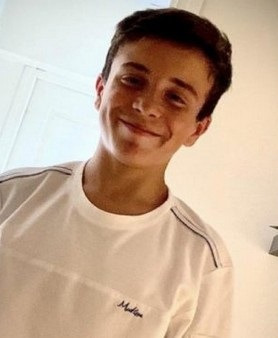

NE PAS LES OUBLIER!
Enzo Parissot , 15 ans, poignardé à mort pour '' un regard ''
- Thomas, 23 ans, massacré de 8 coups de couteau
- Thomas, 16 ans, poignardé à mort par des '' jeunes de cité '' venus '' tuer du blanc "
- Matisse, 15 ans, poignardé à mort par un afghan sous OQTF -
Arnaud Beltrame, gendarme assassiné en service
- Mireille Knoll , 85 ans
- Lola, 12 ans, massacrée gratuitement par Dhabia B
- Samuel Paty, prof décapité par l'islamiste Abdoullakh Anzorov
- Axelle Dorier, 22 ans, tuée et trainée sur 800 mètres sur la route p
- Cabu, assassiné avec 11 autres personnes
- Père Hamel, égorgé en pleine messe
- Marion, 14 ans, violée et massacrée de 68 coups de couteau
- Myriam Monsonégo, 8 ans, assassinée dans son école
- Léana, 2 ans, tuée avec 85 personnes sur la promenade des anglais à Nice
- Laura et Mauranne, 20 ans, égorgées et éventrées
- Olivier Quenault, tabassé à mort- Fabrice Moello et Arnaud Garcia , assassinés
- Jessica et Jean-Baptiste, égorgés devant leur fils de 3 ans
- Philippe Mongillot
- Dominique Bernard, prof d'histoire égorgé
- Sandra, violée et assassinée
- Joachim Tougeron , assassiné
- Nathalie Jardin, assassinée avec 130 personnes au Bataclan
- Alban Gervaise, 41 ans, égorgé devant ses enfants
- Philippe Mathot, 72 ans, battu à mort
- Adrien Perez, 26 ans, poignardé à mort- Thierry Nivon et Julien Vinson
- Michel Montrichard , 70 ans
- Sophie Gravaud, étranglée à mort
- Nadine Devilliers, Simone Barreto et Vincent Loquès, poignardés à mort
- Estelle Veneut , assassinée et jetée dans la Loire - Mélanie Lemée, 25 ans, gendarme assassinée sur un contrôle routier
- Aurélie Fouquet, 26 ans, policière tuée en service
- Pascal Verdenne, 61 ans, assassiné avec 4 autres personnes sur un marché de Noel
Le nom des meurtriers condamnés ou en cours sont connus.
10 notes
·
View notes
Photo
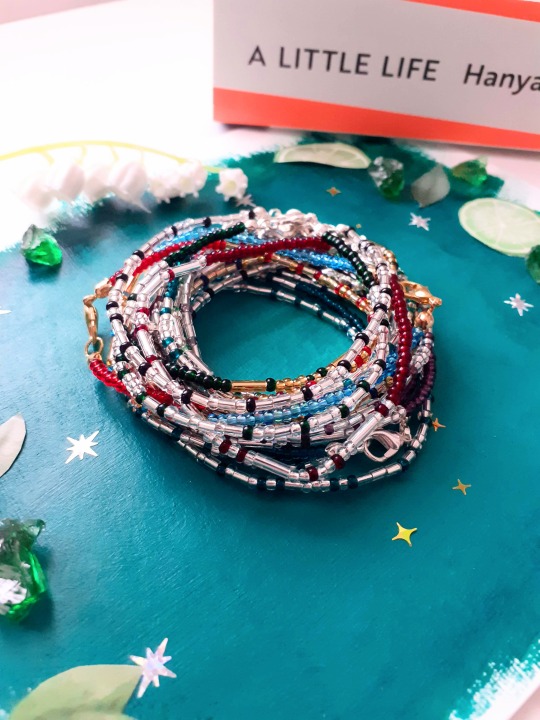


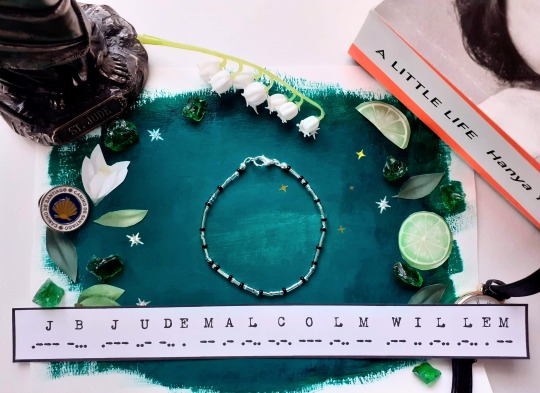
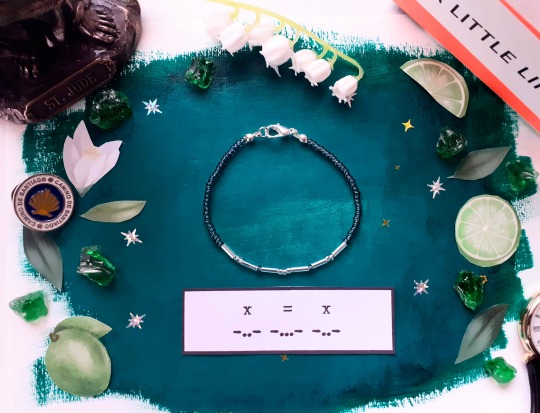
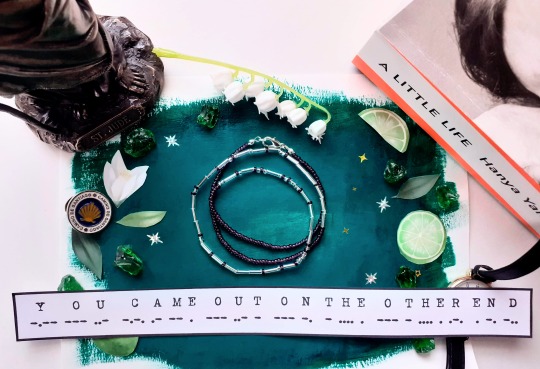

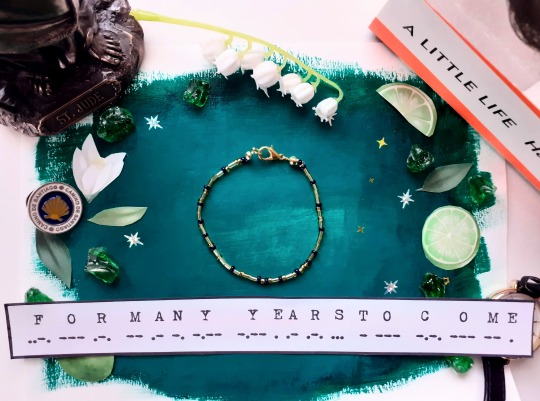
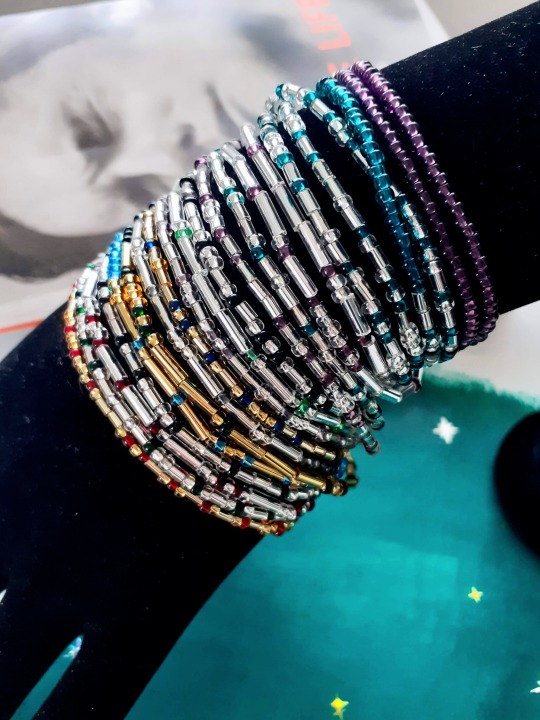
‘June twelfth, a day with no significant anniversaries associated with it, a nothing day...’
Morse code jewellery inspired by A Little Life on Etsy.
#i am literally never not losing my mind over ALL#a little life#a little life book#hanya yanagihara#jude st francis#jude st. francis#willem ragnarsson#malcolm irvine#jb marion#jean baptiste marion#jean-baptiste marion#a little life play#a little life london#a little life amsterdam#a little life merch#ALL book swag#a little life book art#a little life art#a little life quote#jude x willem#willem x jude#visiting lispenard street#visiting lispenard st#photos#amorseart
13 notes
·
View notes
Text
“Who am I? Who am I?” “You’re Jude St. Francis. You are my oldest, dearest friend. You’re the son of Harold Stein and Julia Altman. You’re the friend of Malcolm Irvine, of Jean-Baptiste Marion, of Richard Goldfarb, of Andy Contractor, of Lucien Voigt, of Citizen van Straaten, of Rhodes Arrowsmith, of Elijah Kozma, of Phaedra de los Santos, of the Henry Youngs. You’re a New Yorker. You live in SoHo. You volunteer for an arts organization; you volunteer for a food kitchen. You’re a swimmer. You’re a baker. You’re a cook. You’re a reader. You have a beautiful voice, though you never sing anymore. You’re an excellent pianist. You’re an art collector. You write me lovely messages when I’m away. You’re patient. You’re generous. You’re the best listener I know. You’re the smartest person I know, in every way. You’re the bravest person I know, in every way. You’re a lawyer. You’re the chair of the litigation department at Rosen Pritchard and Klein. You love your job; you work hard at it. You’re a mathematician. You’re a logician. You’ve tried to teach me, again and again. You were treated horribly. You came out on the other end. You were always you.” "And who are you?" "I'm Willem Ragnarsson. And I will never let you go.”
― Hanya Yanagihara, A Little Life
#a little life#hanya yanagihara#book quotes#quotes#literature#book quote#life quote#books & libraries#reading#booklr#bookstagram
12 notes
·
View notes
Text
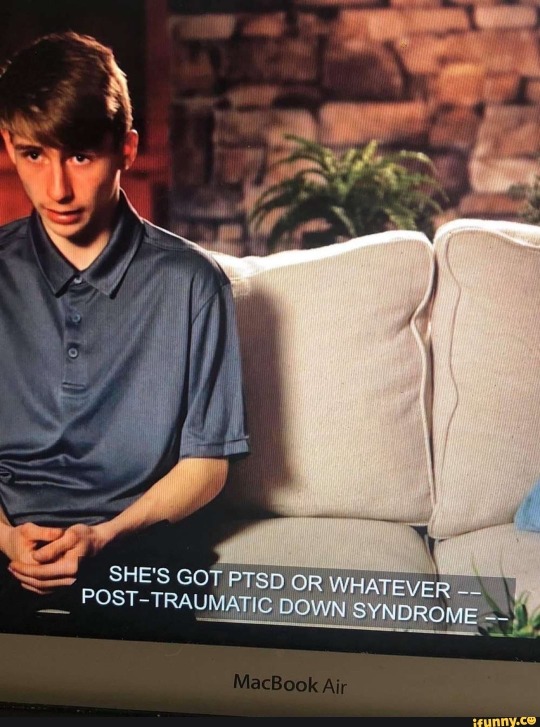
JB talking about Jude
#this is so dumb#But real#I’m right and I should say it#a little life#jude st francis#a little life play#een klein leven#a little life book#jb marion#jean baptiste marion
274 notes
·
View notes
Text
the silliness of these boys,,,,,,,,,awgh
i lowkey missed it the first time because it’s in the background of willem and malcom’s conversation abt jude’s long sleeves but
can we please talk abt jb and jude coming back from a nice beach walk and deciding to and i quote ‘fling sand at each other’ before jb drunkenly collapses and jude decides, apparently without any warning or discussion, to bury him up to his waist in the sand while jb lies there singing
what could be better than this just guys being dudes!!!!
#jude and JB friendship my beloved#just boys being boys#silly lads#no words no indication just Jude limping over and immediately burying JB#a little life#a little life play#jude st francis#een klein leven#a little life book#jb marion#jean baptiste marion#willem ragnarsson#malcolm irvine
86 notes
·
View notes